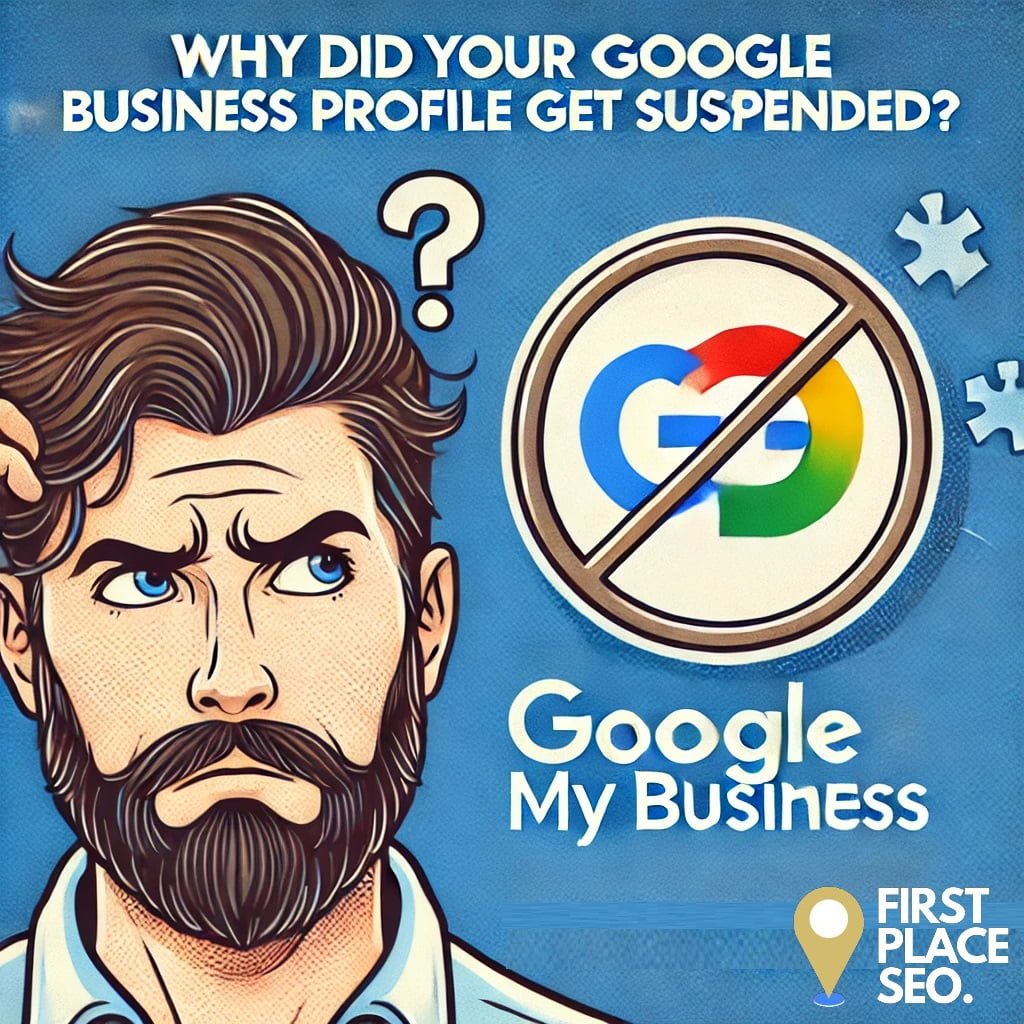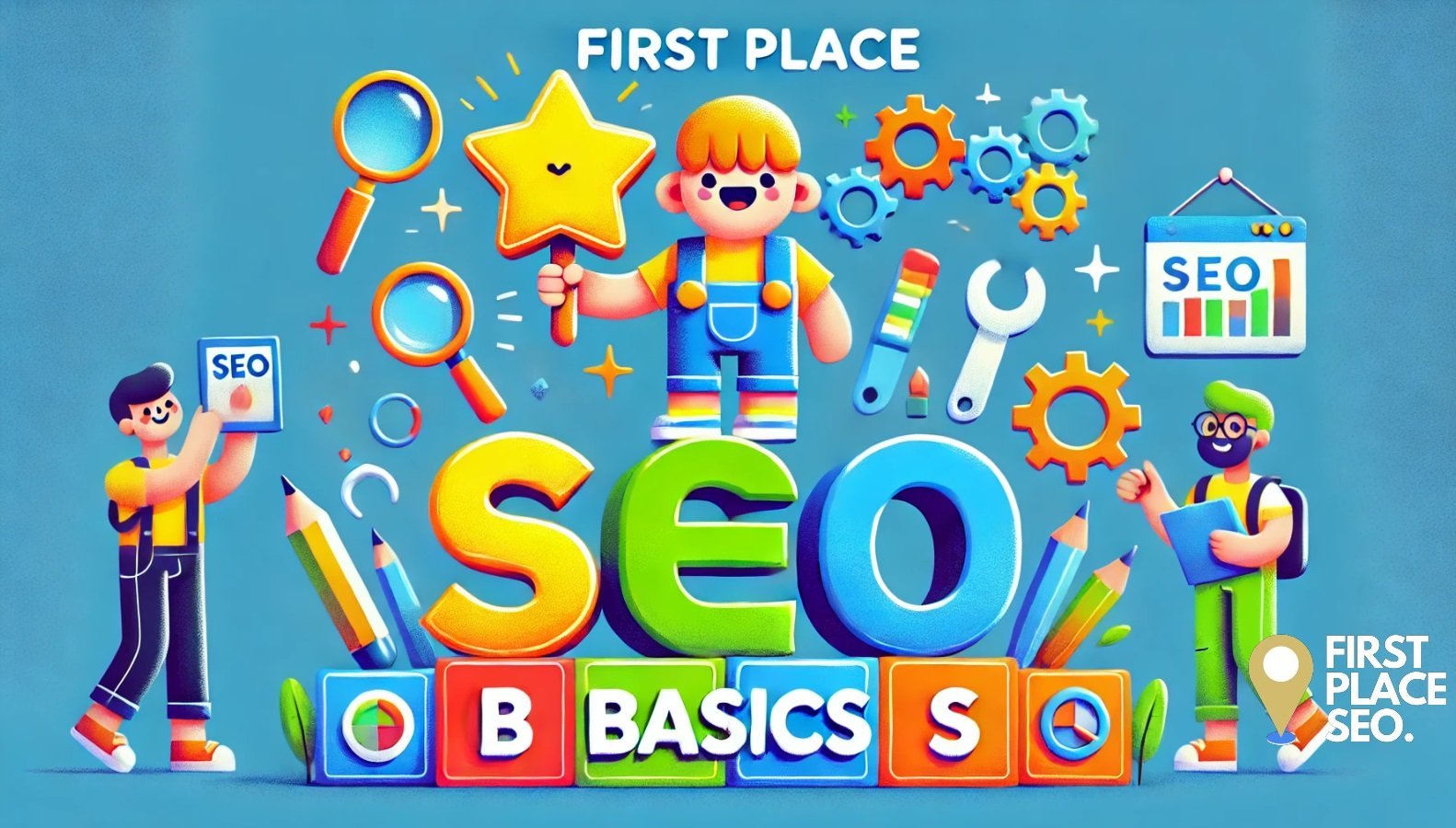Ever wondered what makes Google rank certain pages higher than others? It’s not just a matter of chance or simple algorithms; it’s about adhering to specific SEO best practices that signal to the world’s leading search engine that your content is not only relevant but also authoritative and trustworthy. In this article, we discuss the top 10 SEO best practices that are key to improving your website’s visibility and making sure that Google views your site favourably.
What Are SEO Best Practices?
SEO best practices are a set of tasks designed to help improve a website’s search engine rankings. Common search engine optimisation practices include optimising the content, ensuring it’s accessible to search engine crawlers, and enhancing the user experience on the site.
To qualify for a snippet, let’s start with a question that’s on many website owners’ minds:
How Can I Improve My Website’s Ranking on Google?
To improve your website’s ranking on Google, you should focus on providing high-quality content that resonates with your audience, ensuring that your site is technically optimised for SEO performance, and building your site’s reputation through ethical practices. By following the recommended guidelines and focusing on your users’ experience, you can make significant strides in your SEO efforts.
Remember, by continuing to read, you will gain insight into each practice, understand why it matters, and learn how to implement it effectively. Let’s explore these best practices that are crucial for SEO success and can lead to your site being favoured by Google.

1. Get Your Website Ranked With Original and Unique Content
In a digital world where content is abundant, what truly sets a website apart is its ability to present original and unique information. Google places immense value on content that isn’t just filled with keywords but offers real value to the reader. But why is this so vital?
Why Original Content Reigns Supreme in SEO
Search engines aim to provide users with the most relevant and useful information. Content that is original not only serves this purpose but also establishes a site’s identity and expertise. When you produce content that no one else has, you’re not just giving your audience something of value; you’re also telling Google that your site is a source of fresh ideas and perspectives, which is integral to securing a higher ranking.
The Impact of Uniqueness on Search Rankings
Uniqueness in content goes beyond avoiding plagiarism. It’s about presenting ideas and information in a way that hasn’t been seen before. This can be through in-depth research, unique insights, or a new approach to a common subject. Google’s sophisticated algorithms are adept at distinguishing content that offers a unique angle from that which merely recycles existing information. By prioritising uniqueness, you not only adhere to SEO best practices but also foster a loyal audience base that values your content for its distinctiveness.
2. The Art of Creating Appealing and Relevant Content
Once you have the originality box ticked, the next step is to ensure your content resonates with your audience. This is where the artistry of content creation comes into play, as you craft pieces that are both informative and engaging.
Understanding Your Audience’s Needs
The secret to content that captivates is understanding the specific needs and desires of your target audience. It’s essential to comprehend not just what they are searching for, but also the underlying questions they might have, their pain points, and what delights them. By aligning your content with your audience’s interests, you’re more likely to engage them and encourage interactions, signalling to Google the value and relevance of your website.
Strategies for Boosting User Engagement
Engagement is the currency of the internet. To enhance engagement, your content must do more than just inform; it must spark conversations, provoke thought, and be shareable. Encourage your audience to comment, share, and return for more by:
- Posing thought-provoking questions.
- Providing actionable advice.
- Creating interactive content, such as quizzes or polls.
- Responding to comments and fostering a community.
Content that triggers a response is content that stands out. And in the eyes of Google, such content is worthy of a higher rank. It’s about creating a connection with your audience that goes beyond the screen.
3. Optimising Meta Titles and Descriptions for Click-Throughs
Your meta titles and descriptions are often the first interaction potential visitors have with your website on the search engine results pages. They must be compelling and informative, providing a snapshot of what users can expect by clicking through.
Creating Effective Meta Titles and Descriptions
A well-written meta title is succinct, relevant to the content, and includes the primary keyword your audience is searching for. It should be under 70 characters to ensure it displays fully in search results. The meta description offers more room to persuade with up to 160 characters. Here, include a concise summary of the page content and a call to action, ensuring the primary keyword appears naturally within the text. These elements should work together to not only appeal to search algorithms but also to entice readers.
The Role of Keywords in Meta Tags
Keywords in your meta tags reaffirm to Google the relevance of your content to search queries. However, it’s not just about keyword placement; it’s also about the relevance and appeal of those keywords to the reader. The strategic use of keywords can make the difference between a user scrolling past or clicking through to your website. Keep in mind, keyword stuffing in meta tags can harm your SEO efforts, as Google prioritises user experience and value above all.
Remember, meta titles and descriptions are your digital shop window. They should attract and invite potential visitors in, all the while accurately reflecting the content they will find once they enter your site.
4. Demonstrating Expertise Within Your Niche
Google favours content created by authoritative sources, as it aims to provide the most accurate information to its users. Demonstrating your expertise is therefore crucial in assuring both Google and your audience of the quality of your content.
Building Trust with Google and Your Audience
Establishing trust is fundamental in the online sphere, where information is plentiful but true expertise is a gem. To demonstrate your expertise, ensure that your content is well-researched and fact-checked, and consider including original insights or data. Sharing case studies, testimonials, and endorsements can also bolster your credibility. Remember, trust is not asserted, it’s earned by consistently providing value.
The Expertise, Authoritativeness, and Trustworthiness (E-A-T) Principle
Google’s E-A-T principle is pivotal in understanding how it assesses content quality. Expertise shows you know what you’re talking about, authoritativeness proves others recognise your knowledge, and trustworthiness indicates that your site is a reliable source of information. Whether you’re offering financial advice or health tips, it’s important that your content reflects a high level of E-A-T, which can be achieved by showcasing credentials, citing authoritative sources, and maintaining an impeccable editorial standard.
By demonstrating your expertise, you do not just satisfy the algorithms; you also create content that is meaningful and useful to your readers, fostering a professional image and a loyal following.

5. Achieving a Perfect On-Page SEO Score
On-page SEO is the process of optimizing web pages to rank higher in search engines and involves both content and HTML source code. A perfect score in on-page SEO ensures your website meets all the criteria search engines use to judge your site’s quality.
Key On-Page SEO Factors to Optimise
On-page SEO includes several elements such as title tags, headings, content and keyword density, internal linking, and URL structure. Each aspect should be carefully considered and optimised. For example, your title tags should accurately describe the page’s content, headings should be used to structure content effectively, and keywords should be distributed naturally throughout the text.
Comparing Your SEO Performance with Competitors
Understanding how your on-page SEO stacks up against competitors is crucial. Use tools to analyse your pages and identify gaps. This might include examining their keyword optimisation, site speed, mobile-friendliness, and other SEO factors. Armed with this information, you can make informed adjustments to your own strategy.
Achieving a high on-page SEO score is an ongoing process. It requires regular reviews and updates to your content and website structure to ensure compliance with the latest SEO best practices and algorithms.
6. Adherence to Google Webmaster Guidelines
Understanding and following Google’s Webmaster Guidelines is essential for any website aiming to maintain and improve its search engine ranking. These guidelines are designed to ensure a fair and useful search experience.
Understanding Google’s Dos and Don’ts
Google’s guidelines cover a broad spectrum, from technical specifications to content quality and user accessibility. They lay out clear dos and don’ts in terms of SEO, such as the avoidance of deceptive practices like cloaking, and insist on a mobile-friendly website configuration. Keeping abreast of these rules and regularly checking your site against them is critical for maintaining good standing with Google.
The Consequences of Violating Webmaster Guidelines
Failure to comply with these guidelines can result in penalties, which may range from a drop in rankings to the removal of your site from the search index entirely. These penalties can have a significant impact on traffic and, by extension, on your site’s success. It’s not enough to simply avoid black-hat SEO tactics; you must actively ensure all aspects of your site meet Google’s standards for quality and transparency.
By adhering strictly to these guidelines, you protect your site’s integrity and help ensure a stable and growing presence in search results.
7. Maintaining Freshness of Website Content
Fresh, up-to-date content is a signal to search engines that your website is relevant and providing current information. Google values freshness and often gives higher visibility to websites that regularly update their content.
The Importance of Regular Updates
Updating your content serves multiple purposes: it ensures information remains accurate, it keeps your audience engaged, and it maintains your site’s relevance. For example, if you provide product reviews, consistently adding the latest products shows that your site is a current source of information. Regular updates also provide opportunities to optimize content with trending keywords and topics, which can lead to improved rankings.
Keeping Ahead of the Curve with Fresh Content
Staying ahead means not just following but setting trends. By proactively researching and predicting industry shifts, you can update your content to reflect the latest developments before they become mainstream. This positions your website as a thought leader and a go-to source for the latest information, a status that Google recognises and rewards in its rankings.
Freshness isn’t about changing content for the sake of it; it’s about continually improving and adding value to ensure that your visitors always have something new to discover.
8. Ethical Link Building Practices
Link building is a critical component of SEO, but it must be approached with integrity. Ethical practices ensure that your site gains backlinks naturally and from reputable sources, which Google values highly in its ranking algorithm.
Distinguishing Natural from Spammy Links
Natural links are those that are given without solicitation, based on the merit of your content. They come from websites that find your content valuable enough to share with their readers. On the other hand, spammy links, often bought or exchanged through schemes, can harm your SEO efforts. Google’s algorithms are adept at identifying unnatural linking patterns, and sites found to be engaging in these practices can be penalized.
The Importance of Quality Over Quantity in Link Building
The adage “quality over quantity” holds particularly true in link building. A few high-quality links from authoritative sites in your niche are far more beneficial than numerous low-quality links. To attract these valuable links, focus on creating outstanding content that naturally encourages shares and links. Additionally, engaging with your industry community through guest blogging, interviews, and collaborations can be an effective way to build high-quality links ethically.
Ethical link building not only aligns with Google’s guidelines but also fosters genuine connections and collaborations, which can further elevate your website’s authority and ranking.
9. Leveraging Social Media for SEO
While social media signals do not directly impact search engine rankings, the visibility and engagement on these platforms can significantly affect the factors that do, such as traffic and link building.
The Synergy Between Social Media and SEO
Social media extends the reach of your content, making it more likely to be seen, shared, and linked to by a wider audience. This indirect impact can enhance your SEO efforts, as increased visibility often leads to more organic backlinks and higher traffic volumes. Moreover, social media profiles and content can rank in search engine results themselves, further increasing your online presence.
Tips for Maximising Social Media Engagement
To harness the full potential of social media for SEO, consider the following strategies:
- Share valuable and engaging content that encourages interaction and sharing.
- Use relevant hashtags to increase the visibility of your posts.
- Engage with your followers by responding to comments and participating in conversations.
- Collaborate with influencers and other businesses in your niche to reach a broader audience.
Social media is a powerful tool for amplifying the reach of your content and should be an integral part of your overall SEO strategy.
10. Staying Updated with SEO Trends and Algorithm Changes
The SEO landscape is continuously evolving, with frequent updates to search engine algorithms and best practices. Staying informed about these changes is crucial for maintaining and improving your website’s search engine ranking.
How to Keep Abreast of Latest SEO Developments
- Follow Authoritative SEO News Sources: Websites like Search Engine Journal, Moz, and Search Engine Land regularly publish updates and insights into the SEO industry.
- Use SEO Tools: Many SEO tools offer insights into algorithm changes and how they might affect your site. Tools like SEMrush and Ahrefs can be invaluable for this.
- Participate in SEO Forums and Communities: Online communities such as Reddit’s SEO subreddit or the Google Webmaster Central Help Forum can be great places to hear about updates and discuss strategies with other professionals.
The Importance of Regular SEO Audits
Conducting regular SEO audits on your website is essential to understand how well your SEO efforts are paying off and where there might be room for improvement. Audits can help you identify issues that could be holding your site back, such as broken links, slow page load times, or content that needs updating to reflect the latest best practices.
By staying informed and adaptable, you can ensure that your SEO strategies remain effective, helping your site to maintain high rankings and attract more organic traffic.
Practical SEO Best Practices Recap
As we conclude, let’s recap the essential SEO best practices that can significantly enhance your website’s visibility and ranking on Google. Implementing these strategies diligently will ensure that your site not only meets Google’s criteria for a high-quality website but also provides a valuable and enjoyable experience for your users.
- Original and Unique Website Content: Prioritize creating content that is both unique and offers genuine value to your audience.
- Appealing and Relevant Content: Understand and address your audience’s needs, fostering engagement and loyalty.
- Optimising Meta Titles and Descriptions: Make your first impression count with compelling and keyword-optimized meta tags.
- Demonstrating Expertise: Establish your authority and trustworthiness through high-quality, informative content.
- Perfecting On-Page SEO: Pay attention to all on-page factors, from site speed to keyword optimization.
- Adherence to Google Webmaster Guidelines: Stay within Google’s guidelines to avoid penalties and ensure your site’s credibility.
- Maintaining Content Freshness: Regularly update your content to keep it relevant and engaging.
- Ethical Link Building Practices: Focus on acquiring high-quality backlinks naturally and ethically.
- Leveraging Social Media: Use social media to amplify your content’s reach and engagement.
- Staying Updated with SEO Trends: Keep abreast of SEO developments and adjust your strategies accordingly.
By adhering to these SEO best practices, you can create a strong foundation for your website’s success in search engine rankings. Remember, SEO is a long-term investment in the quality and visibility of your site. Stay committed, be patient, and continuously strive for improvement.
Thank you for following along with this guide. Implement these strategies to keep Google “happy” and watch your website climb the ranks in the search engine results pages. Alternatively if you’d like the best seo agency in London to rank you website in Google for you then get in touch, we’d be more than happy to help!










